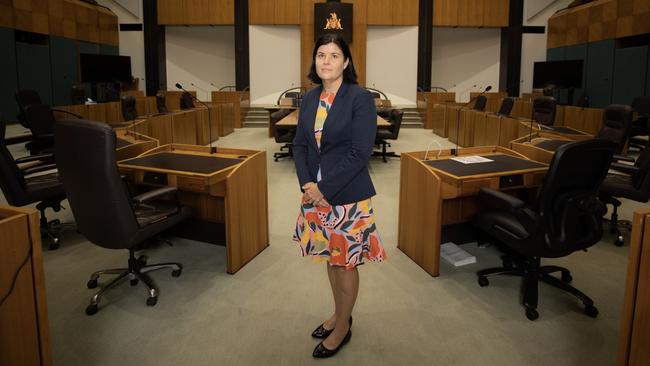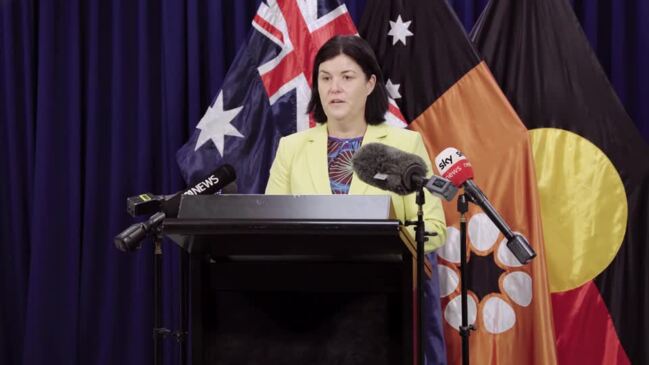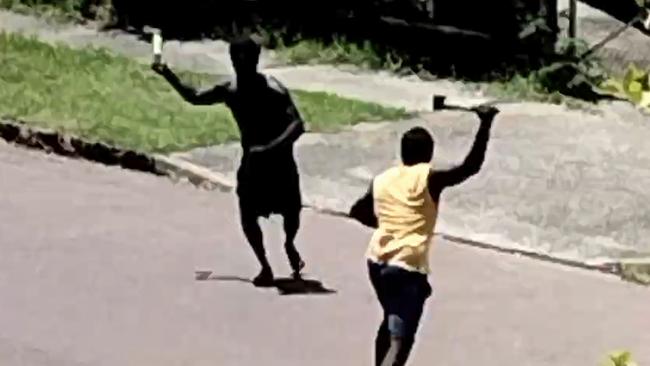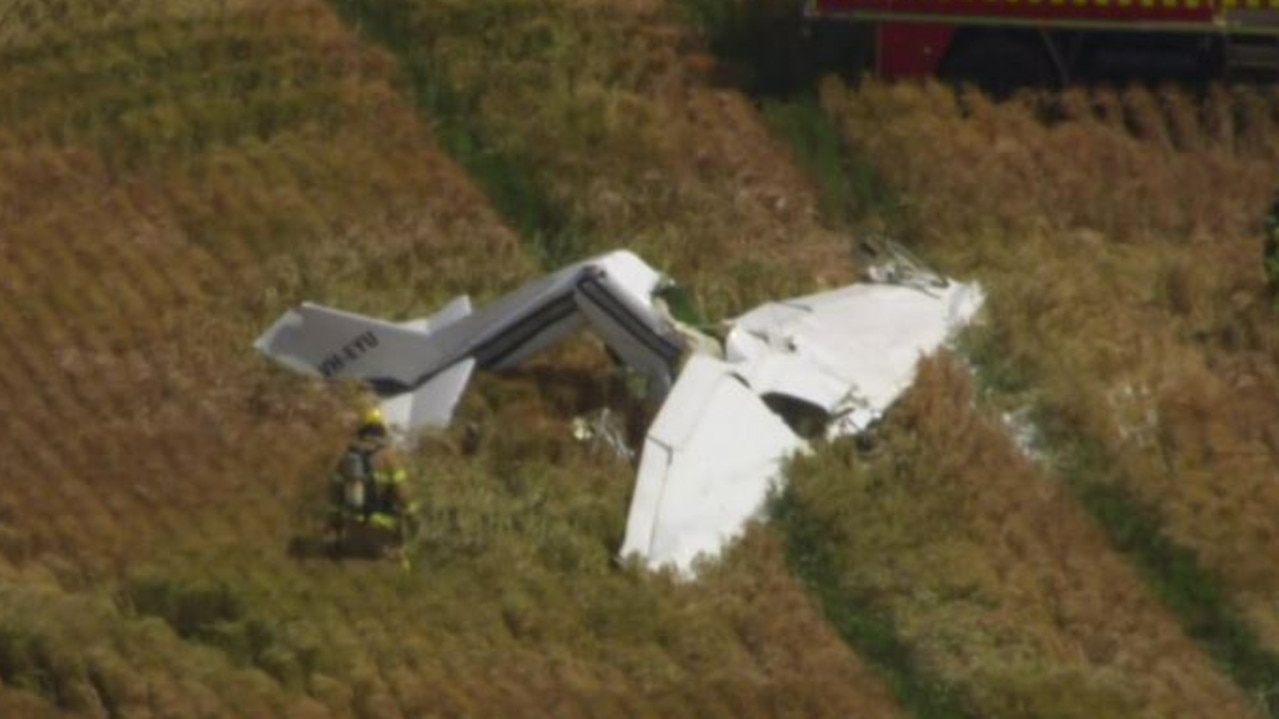Chief Minister believes NT issues can be overcome
Northern Territory Chief Minister Natasha Fyles says she doesn’t believe knife crime has taken a hold, and believes the issues plaguing the Territory can be overcome.

Northern Territory Chief Minister Natasha Fyles says she doesn’t believe knife crime has taken a hold, and believes the issues plaguing the Territory can be overcome.
Ms Fyles acknowledged the Territory was undergoing a “particularly challenging time” but said she was optimistic that “long-term change will start to take place”.
“It’s been a real challenge for our community, and we haven’t stopped trying since we got to government but it’s been a particularly intense period, I acknowledge that,” she said.
“I think from our community’s perspective, we have seen some short-term respite in Central Australia and Alice Springs.”
Police faced a fresh wave of violence on the streets of Darwin and Alice Springs at the weekend, with the government demanding the resignation of Police Commissioner Jamie Chalker, indicating it had lost confidence in him.
Parliament last week passed new laws legislating a presumption against bail for violent offenders carrying certain types of weapons, following the stabbing death of 20-year bottle-shop worker Declan Laverty.
“We don’t want to see knife crime take hold in the Northern Territory, but in terms of solutions we’ve done an enormous amount of work in the alcohol policy space,” Ms Fyles said.

“The Territory has had an issue with grog for decades and I’m determined to overcome that.”
Ms Fyles said her government was continuing to review bail laws and penalties, saying “there’s not one individualised solution” to overcoming alcohol issues seen in the Territory.
“There’s a multitude of examples that we are putting in place to change that culture around drinking in the Northern Territory, it’s OK to have a drink and relax, but it can’t define us,” she said.
However, Ms Fyles ruled out introducing Stronger Futures-era legislation to combat alcohol-fuelled violence.
“We have to acknowledge that it’s a legal product, and I don’t want to re-go over history, but we didn’t want to be in a situation with a race-based law that disempowered people,” she said.
“We have put in place a policy in the Northern Territory, the legislation is there, that allows communities to have alcohol but there is criteria they must meet including 60 per cent of the community agreeing to that.”
On Sunday police announced the deployment of additional officers to greater Darwin following a spate of overnight crime, in which three cars were stolen and used in five break-ins.
On Friday over a dozen men and women engaged in a vicious daylight street battle in the Darwin suburb of Moil, wielding tomahawk axes and other makeshift weapons, and a family was forced to flee a car at a petrol station after it was hijacked and stolen on Sunday morning.
On Friday night in Alice Springs, five vehicles were stolen from a security company, with police receiving multiple calls from the public reporting erratic driving around the CBD.
“The vehicles all contained several youths, sometimes hanging out of the car and attempting to swerve at police vehicles before driving away at speed,” police said.

Ms Fyles said the violent behaviour seen in the streets was avoidable.
“We have alternatives to custody, we have justice reinvestment in Alice Springs … there are programs that work, they cost money, they take a lot of effort, but they are so worth it to keep our community safe and to put those individuals on a trajectory where they can be participating in our community, not being incarcerated, or in a cycle of going in and out of prison,” she said.
The Northern Territory prison population reached a record high, with 1 per cent of the entire Territory population behind bars on Friday, March 24.
It’s a figure the Chief Minister described as “not acceptable”.
Police officers are now having to assist corrective services with prisoner management, and prisoners are also being housed in watch houses.
Ms Fyles said her government was looking at alternatives to prisons such as work camps and electronic monitoring.
She denied that the measures her government had introduced following increased violence, such as stronger bail laws and a buyback of independent liquor licences, were piecemeal.
“We certainly are continuing to review both the penalties and the bail, and so there could be further work (but) I don’t want to pre-empt that,” Ms Fyles said.
Responding to reports of claims businesses and families were leaving the Territory due to ongoing crime, she said it was easy for businesses to “blame it on the circumstances”.
“Individual businesses make decisions, and there’s a multitude of factors and sometimes it’s easy to blame it on the circumstances and sometimes that circumstance does play a part,” she said.
“I don’t want to downplay anything, but I just want to say to people, be really careful what you believe and make sure that you have a balanced view because there are some really terrific exciting things happening in the Territory.”







